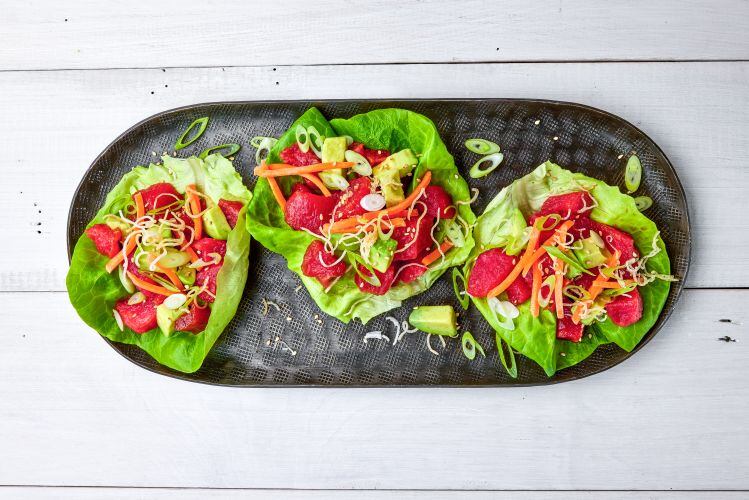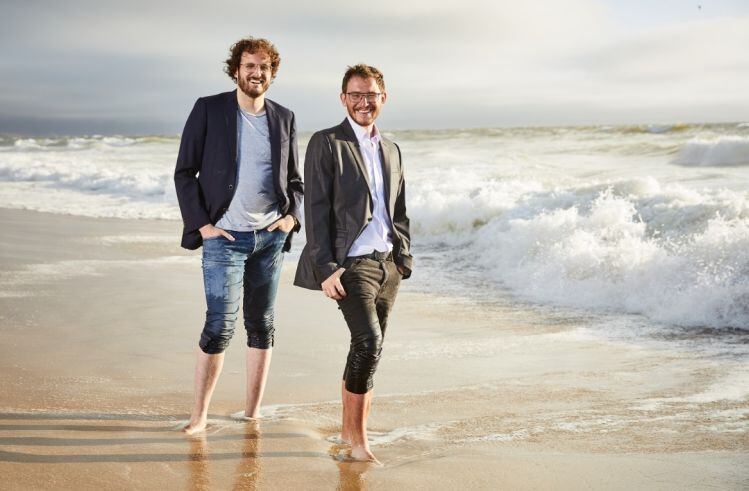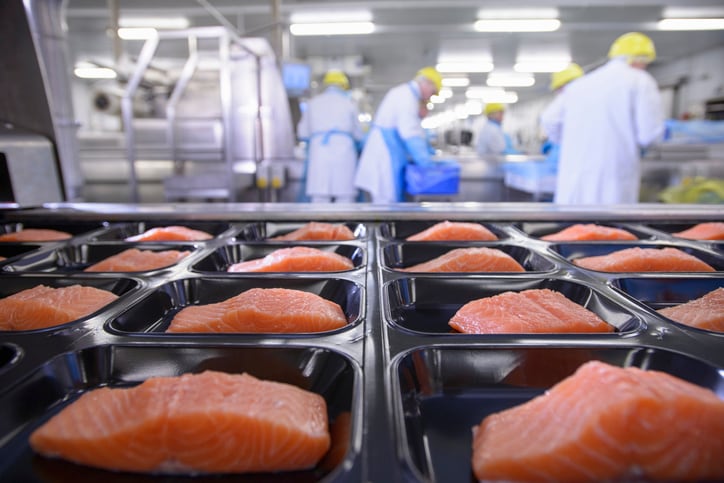The announcement comes hot on the heels of a $100m raise from fellow cell-cultured seafood startup Wildtype, which has a "modest" pilot plant in San Francisco but says a larger facility will come online shortly to support the commercial launch of cell-cultured salmon after it completes its pre-market consultation with FDA.
San Diego-based BlueNalu, meanwhile, has just struck a deal with multinational sushi restaurant operator, Food & Life Companies to bring cell-cultured toro - the belly portion of bluefin tuna - to market in Japan.
Cell-cultured bluefin tuna
Finless Foods - which is on a mission to "lead the industry in reducing the price of cell-cultured bluefin tuna to reach price parity with its conventional equivalent" - said its new funding would support the construction of a pilot plant due to open in the Bay Area this year.
"The pilot facility will be a proof of concept, it will only produce enough for the first handful of restaurants," co-founder Mike Selden told FoodNavigator-USA. "We are already drawing up plans for a production facility that will serve a large chunk of the US market. The first cell-cultured product we are aiming for is bluefin sashimi."
So what is his take on last year’s article in The Counter (drawing upon two techno-economic analyses of cell-cultured meat: CE Delft 2021 and Humbird 2020), which argued that cell-cultured meat faces "intractable technical challenges at food scale?"
According to Selden: "The 'it’s not scalable' narrative laid out in this article relies on assuming it isn’t possible to produce whole cuts of meat that are 80-90% animal cells using stir tank bioreactors (the only animal-cell production system fully proven as scaled today) for less than $10/lb. This is a real concern, but assuming it is completely true as written, this means that bluefin tna (~$40/lb) and even typically consumed tuna like skipjack (~$15/lb) are both totally viable."
He added: "Finless bluefin sashimi is currently competitive with the cost of bluefin sashimi in restaurants, on the low end. We’ve worked with some of the leading experts globally on novel seafood cell culture and have developed technology specifically suited to that because of the high price point associated with it - so it's much easier to get competitive with than commodity meats."
Asked what developments in enabling technologies he is most excited about in the nascent cell-cultured meat and seafood space, he said: "I’m most excited by Integriculture in Japan, which has developed a fascinating new way to build a cell culture system via integrating other cell types to feed each other in a circular way."

Plant-based tuna
The series B money will also support the national launch of its plant-based substitute for raw tuna, which is made from an undisclosed combination of plants, but not the typical extruded soy or pea base, said Selden.
"The main ingredient and base of the product is winter melon. We’ve had a great range of interest across a variety of commercial and non-commercial segments as well as menu types. C&U to lodging, fast casual to upper casual, Asian to Mexican, seafood to salad and sandwich."
While all this might seem like a distraction for a startup that presumably has its hands full working on getting cell-cultured seafood to market, it should not be seen as an admission that the latter is not ready for prime time, stressed Selden in a call with us last year.
“We want to prove that people want alternative seafood in large amounts, and right now, there's just not something on the market that really satisfies a meat eater’s craving for alternative seafood. So with this plant based product, we think we can satisfy that because we have something that blows everything else out of the water.”
Plant-based tuna: 'We haven't focused on protein...'
That said, plant-based seafood was not something Selden and co-founder Bryan Wyrwas were working on straight out of the starting blocks. Instead, it emerged as an opportunity rather serendipitously in the course of developing its primary product, cell-cultured fish, he said.
“We were growing Bluefin tuna cells, and we were testing a bunch of different scaffolds as we wanted to see which one the cells would attach to, but also which ones give you the best sensory experience. So we said okay, we'll make the scaffolds taste like fish, and we combined some of our media ingredients with stuff we bought at the grocery store, and we realized we had a really good product that was made entirely out of plants.”
On the nutritional front, he added: “We haven't focused on protein, we've focused on what consumers seem to be most interested in fish for, which are the omegas, and we have been able to get different varieties of omegas [including long-chain fatty acids EPA and DHA from algae] into the products.”
“Given the climate change facing our planet, we believe cellular agriculture will become the future of food production. For that, we are thrilled to embark on the journey together with Finless.” Hanwha Solutions
'For something like sashimi, I think that's really where the cell cultured technology comes in'
In general, plant-based products are well-suited to ground and processed products from burgers to crab cakes, he said, while cell-cultured products have the potential to more closely replicate whole cuts, he claimed.
“I don't think plants are fantastic at creating whole muscle, and for something like sashimi, I think that's really where the cell cultured technology comes in.”
While some advocates of plant-based meat feel that cell-cultured meat and seafood is a very different consumer proposition, Selden said he anticipated that the consumer base for these products may overlap a fair bit: “We want to use this [plant-based] launch to figure out exactly who wants alternative seafood."
*The series B round - which brings Finless Foods’ cumulative funding to nearly $48M since 2017 - was led by Hanwha Solutions. Additional investors include Japanese seafood company Dainichi Corp, At One Ventures, Olive Tree Capital, Justin Kan, Humboldt, Gaingels, Draper Associates, Sustainable Ocean Alliance and SOSV.




